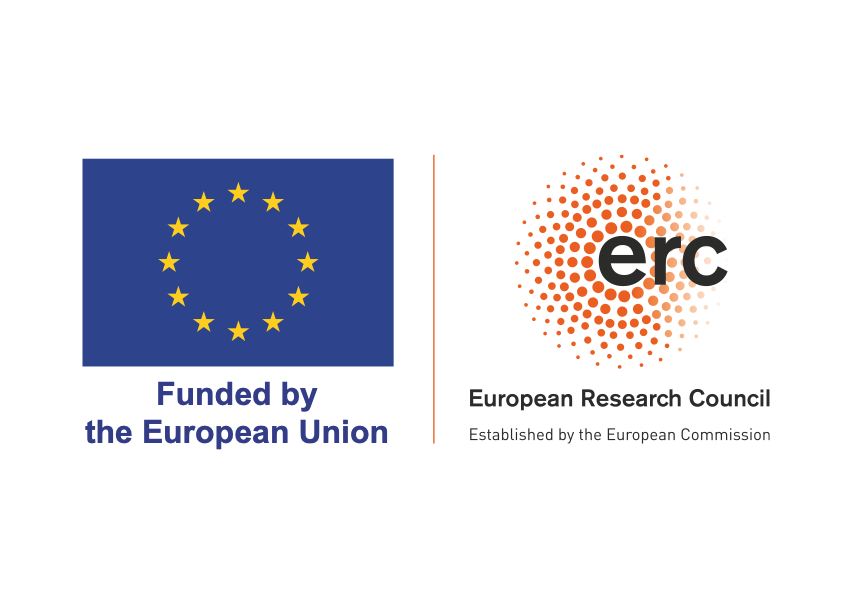
NEMESIS
ERC Starting Grant 2023 [PI: Daniele Durante]
Criminal networks are different than any other network studied in science, since no other network has the objectives, trade–offs and adversarial nature of those generated in criminal contexts. This uniqueness yields peculiar forms of data incompleteness and complexity which undermine advancements in the analysis of modern criminal networks. While standard techniques from social network analysis can improve the picture, quoting leading scholars in the field, "criminal networks are not simply social networks in criminal contexts".
NEMESIS embraces this fascinating challenge and transforms it into unexplored opportunities to develop impactful modeling perspectives which combine [1] modern theories from Criminology and Social Sciences, [2] rigorous and innovative methodology from Statistics, and [3] efficient computational techniques to expand current studies of criminal networks. From a methodological perspective, NEMESIS will design state–of–the–art models (with impact even beyond criminology) for multiplex, multilayer and dynamic networks, relying on yet unexplored combinations of evolutionary trees, zero–inflated processes, dependent random partitions, latent variable representations, and other advanced constructions capable of formally incorporating and inferring generative structures specific to criminal networks, while accounting for the unique research questions and modern theories provided by Criminology and Social Sciences.
The project will be carried out within the Bocconi Institute for Data Science and Analytics [BIDSA], a vibrant research center which promotes and facilitates data–driven research at Bocconi University. It represents Bocconi's timely answer to the increasing interest in Data Science across all fields. The abundance and complexity of large–scale datasets in science and every–day life is creating exciting opportunities and great challenges for our society. In order to exploit the information contained in these datasets and model the underlying complex phenomena, modern data scientists need to combine advanced knowledge from a variety of disciplines, including mathematics, statistics, computer science, social sciences and other domain–specific knowledge. By acting as a central hub of data science research and education at Bocconi, BIDSA allows for effective interdisciplinary collaborations and cross–fertilization across data–related research areas.

[Project PI] Daniele Durante

[Collaborator] Emanuele Aliverti

[Collaborator] Tommaso Rigon

[Postdoc] Louise Alamichel

[Postdoc] Cristian Castiglione

[Postdoc] Caterina Paternoster

[Postdoc] Alessandro Colombi
| Durante, D., Gaffi, F., Lijoi, A. and Pruenster, I. [2025]. Partially exchangeable stochastic block models for (node-colored) multilayer networks. Journal of the American Statistical Association. 120, 1811–1827. |
| Lu, C., Durante, D., and Friel, N.B. [2025]. Zero-inflated stochastic block modeling of efficiency-security tradeoffs in weighted criminal networks. Journal of the Royal Statistical Society, Series A (Statistics in Society), In Press. |
| Zens, G., Dìaz, C., Durante, D. and Patacchini, E. [2025]. Low-rank bilinear autoregressive models for three-way criminal activity tensors. Journal of the Royal Statistical Society, Series C (Applied Statistics), In Press. |
| Anceschi, N., Castiglione, C., Rigon, T., Zanella, G., and Durante, D. [2025]. Optimal and computationally tractable lower bounds for logistic log-likelihoods. arXiv:2410.10309. [submitted]. |
| Ghilotti, L., Camerlenghi, F., Rigon, T. and Guindani, M. [2025]. Bayesian nonparametric modeling of multivariate count data with an unknown number of traits. arXiv:2510.24526. [submitted]. |
| Aliverti, E. [2025]. Approximate Bayesian inference for cumulative probit regression models. arXiv:2511.06967. [submitted]. |
| Pavone, F., Durante, D. and Ryder, R. [2025]. Phylogenetic latent space models for network data. arXiv:2502.11868. [submitted]. |
| Paternoster, C. and Calderoni, F. [2026+]. Ties to trust: Factors influencing collaboration within and across organised criminal groups. [work in progress]. |
| Alamichel, L., Gaffi, F., Rigon, T. and Durante, D. [2026+]. Partially exchangeable enriched stochastic block models. [work in progress]. |
| Colombi, A., Beraha, M., Durante, D., Favaro, S. [2026+]. Bayesian nonparametric discovery of unseen species and features. [work in progress]. |
| ➜ CONFERENCES AND WORKSHOPS |
| Durante. Satellite to ISBA 2024 workshop. Lugano, 25-28/06/2024 |
| Durante. Working Group on Model-Based Clustering Summer Session. Bertinoro, 22-26/07/2024 |
| Durante. Bayesian Methods for the Social Sciences II. Amsterdam, 16-18/10/2024 |
| Alamichel. BAYSM 2025. Online, 07-11/04/2025 |
| Alamichel. BISP14 Workshop. Milan, 26-28/05/2025 |
| Alamichel. BNP14. Los Angeles, 23-27/06/2025 |
| Durante. Plenary Talk. IWSM 2025. Limerick, 13-18/07/2025 |
| Paternoster. European Society of Criminology (ESC) Annual Meeting. Athens, 03-06/09/2025 |
| Paternoster. Tenth International Workshop on Social Network Analysis (ARS’25). Naples, 30-31/10/2025 |
| Aliverti. Workshop High-Dimensional Data, Networks and Beyond. Treviso, 05/12/2025 |
| Durante. Workshop High-Dimensional Data, Networks and Beyond. Treviso, 05/12/2025 |
| Alamichel. CMStat 2025. London, 13-15/12/2025 |
| Aliverti. ABACO26. Padova, 06/02/2026 |
| Aliverti. SIS-FENStatS 2026. Rome, 25/06/2026 |
| ➜ SCIENTIFIC SEMINARS |
| Durante. Università Cattolica, Italy, 25/01/2024 |
| Durante. School of Mathematics, University of Birmingham, UK, 19/05/2025 |
| Alamichel. MAP5 Université Paris-Cité. Paris, 21/11/2025 |
| Alamichel. Università della Svizzera italiana. Lugano, 20/01/2026 |
| ➜ DISSEMINATION |
| Durante. “The Dark Side of Networks”. Bocconi Summer School in Data Science. Milan, 11/07/2024 |
| Durante. “The Dark Side of Networks”. Bocconi Summer School in Data Science. Milan, 10/07/2025 |
| Durante. “The Dark Side of Networks”. Intersections of (Data) Science – Interdisciplinarity in Mathematics High Schools. University of Padova, Padova, 25/11/2025 |
| [1] NEMESIS brainstorming meeting. May 21, 2024 [Bocconi University, Milan] |
Funded by the European Union (ERC, NEMESIS, project number: 101116718). Views and opinions expressed are however those of the author(s) only and do not necessarily reflect those of the European Union or the European Research Council Executive Agency. Neither the European Union nor the granting authority can be held responsible for them.